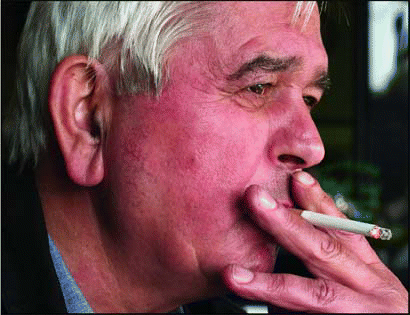Chronic rhinosinusitis affects approximately 30 million Americans. More than 200,000 sinus procedures are performed annually in the United States in an effort to provide relief to individuals who suffer from chronic rhinosinusitis.1 Many factors are believed to cause and/or exacerbate symptoms of chronic rhinosinusitis, including smoking. However, the prevailing opinion to date has been that people who smoke may not receive sufficient benefit from endoscopic sinus surgery for chronic rhinosinusitis to make them good candidates for the procedure. Based on studies supporting this belief, many surgeons recommend against endoscopic sinus surgery for active smokers. Some surgeons suggest that patients refrain from smoking for several weeks prior to and following surgery; however, it may not be realistic to expect that a patient addicted to nicotine will comply with these instructions. A new study presented at the Combined Sections Meeting of the Triological Society in February suggests that smokers may, in fact, achieve significant benefit from endoscopic sinus surgery for chronic sinusitis, at least in the short term.
Explore This Issue
August 2007
The study, authored by Subinoy Das, MD, Adam M. Becker, MD, J. Drew Prosser, BS, and Stilianos E. Kountakis, MD, PhD, of the Department of Otolaryngology-Head and Neck Surgery, Medical College of Georgia, has been submitted for publication. Dr. Kountakis, Professor and Vice Chair of the Division of Rhinology and Sinus Surgery Chief and Residency Program Director of the Department of Otolaryngology-Head and Neck Surgery at the Medical College of Georgia, offered some highlights of the study in a telephone interview.
First and foremost, Dr. Kountakis stressed that the study’s authors in no way advocate smoking. The countless risks of cigarette smoking to an individual’s health in general are well documented, and the benefits to quitting are inarguable. Dr. Kountakis stated, None of us recommend that people should continue to smoke. We did an open-minded investigation to find out what the risks of smoking related to endoscopic sinus surgery truly are. We still recommend that people quit smoking.
According to Dr. Kountakis, the purpose of the study was to prospectively compare the benefit of endoscopic sinus surgery to smokers and nonsmokers utilizing the Sino-Nasal Outcome Test-20 (SNOT-20). The study included 225 patients who were diagnosed with chronic rhinosinusitis according to the criteria of the Rhinosinusitis Task Force of the American Academy of Otolaryngology-Head and Neck Surgery. The patients were offered endoscopic sinus surgery for chronic rhinosinusitis after failing at least four weeks of medical therapy, although operative data were available on only 221 patients. Forty-nine patients were smokers; 172 patients were nonsmokers.
Leave a Reply